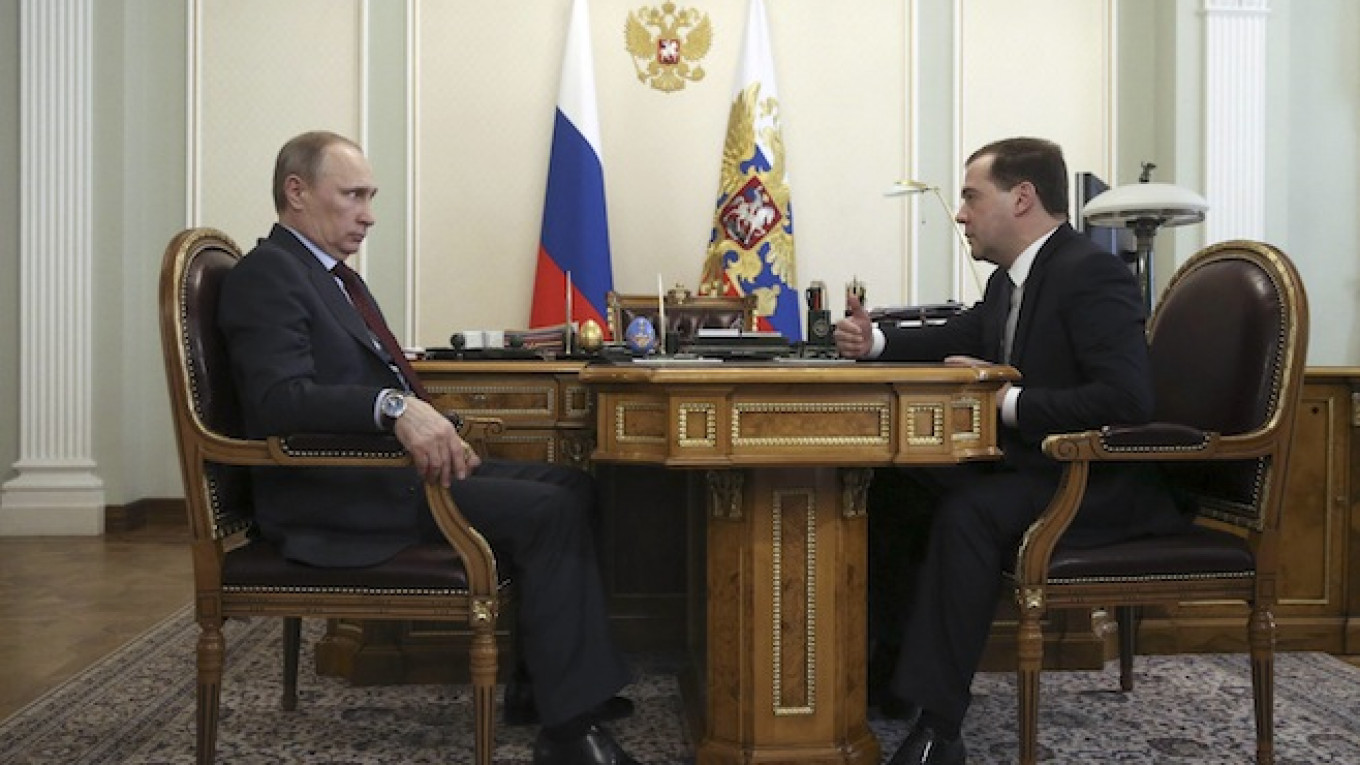Income declarations released by the government show President Vladimir Putin earned 3,672,208 rubles ($102,660) last year, while Prime Minister Dmitry Medvedev made 4,259,525 rubles.
The numbers were modest compared to the figures declared by some of the richest people in the government; First Deputy Prime Minister Igor Shuvalov was said to have earned 241 million rubles in 2013, in addition to the 237 million rubles earned by his wife, according to documents posted Friday on the Cabinet website.
Top earners in the Kremlin administration included Putin's representative to the Crimean Federal District, Oleg Belaventsev, who was appointed to the job after Russia's annexation of the peninsula last month. Belaventsev made 79.5 million rubles last year, according to income declarations published on the Kremlin website.
Others on the Kremlin list included Security Council Secretary Nikolai Patrushev, who made 34.5 million rubles; the Kremlin envoy to the State Duma, Garry Minkh, who made 50.7 million rubles; and Patrushev's aide Alexei Pavlov, who made 34.6 million rubles.
Many other declarations showed significantly more modest incomes, prompting a flurry of comments on Russia's social networks, with many users expressing mock sympathy with the "poor" officials.
Beside incomes for themselves and their family members, officials are also required to report their real estate holdings and cars.
Deputy Prime Minister Dmitry Kozak declared residential rights to a 59.4-square meter apartment as his sole real estate holding, prompting a reader of the Ekho Moskvy website to comment that the top official appeared to be living with his wife, son and daughter in a one- or two-bedroom dwelling. Kozak does not own a car, according to his declaration.
Medvedev has two vintage Russian-made Volga sedans, in addition to a Volkswagen Golf owned by his wife, and a 368-square meter apartment, his declaration said.
Putin also owns two vintage Volga cars and a Russian-made Niva jeep.
A Message from The Moscow Times:
Dear readers,
We are facing unprecedented challenges. Russia's Prosecutor General's Office has designated The Moscow Times as an "undesirable" organization, criminalizing our work and putting our staff at risk of prosecution. This follows our earlier unjust labeling as a "foreign agent."
These actions are direct attempts to silence independent journalism in Russia. The authorities claim our work "discredits the decisions of the Russian leadership." We see things differently: we strive to provide accurate, unbiased reporting on Russia.
We, the journalists of The Moscow Times, refuse to be silenced. But to continue our work, we need your help.
Your support, no matter how small, makes a world of difference. If you can, please support us monthly starting from just $2. It's quick to set up, and every contribution makes a significant impact.
By supporting The Moscow Times, you're defending open, independent journalism in the face of repression. Thank you for standing with us.
Remind me later.






